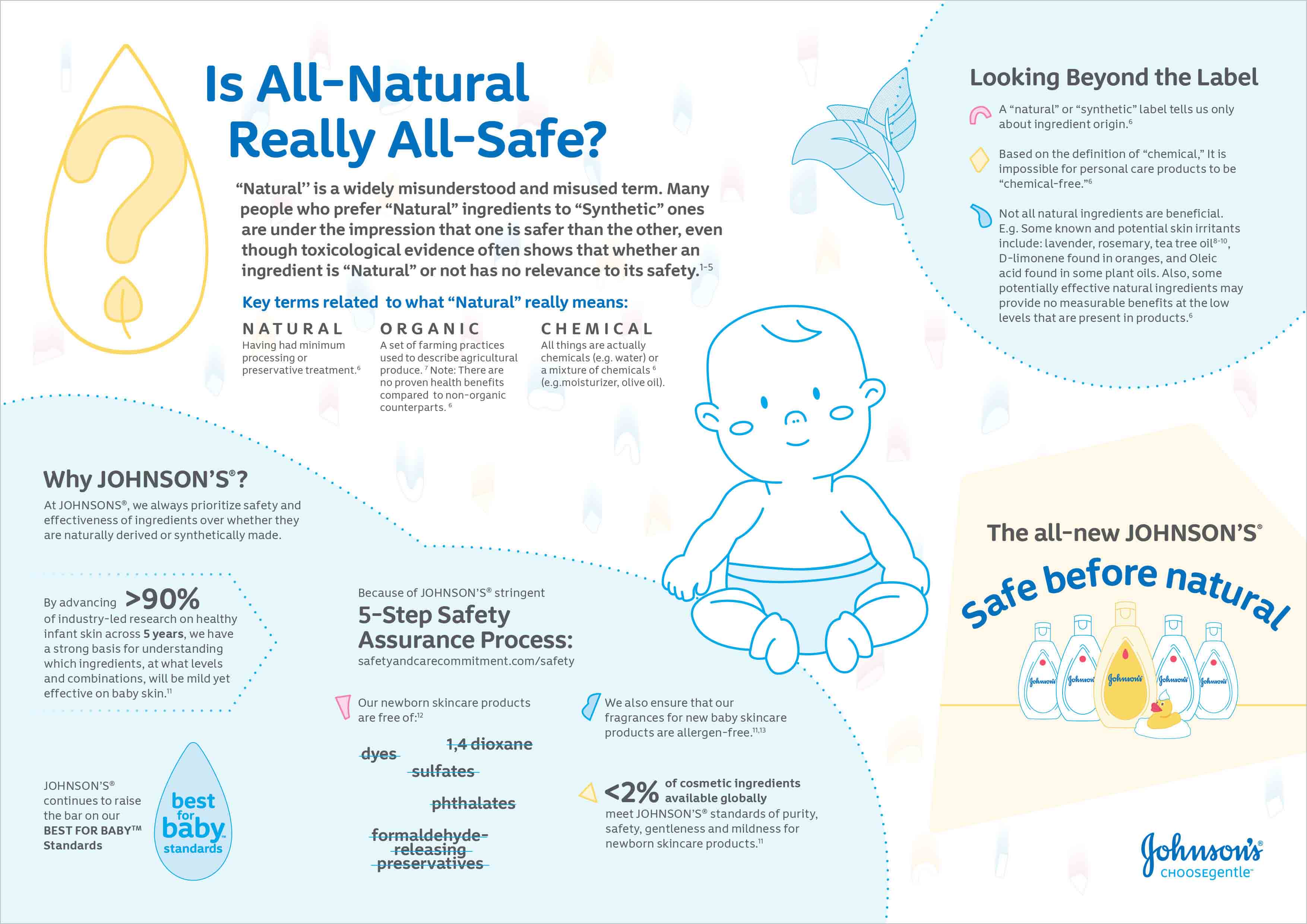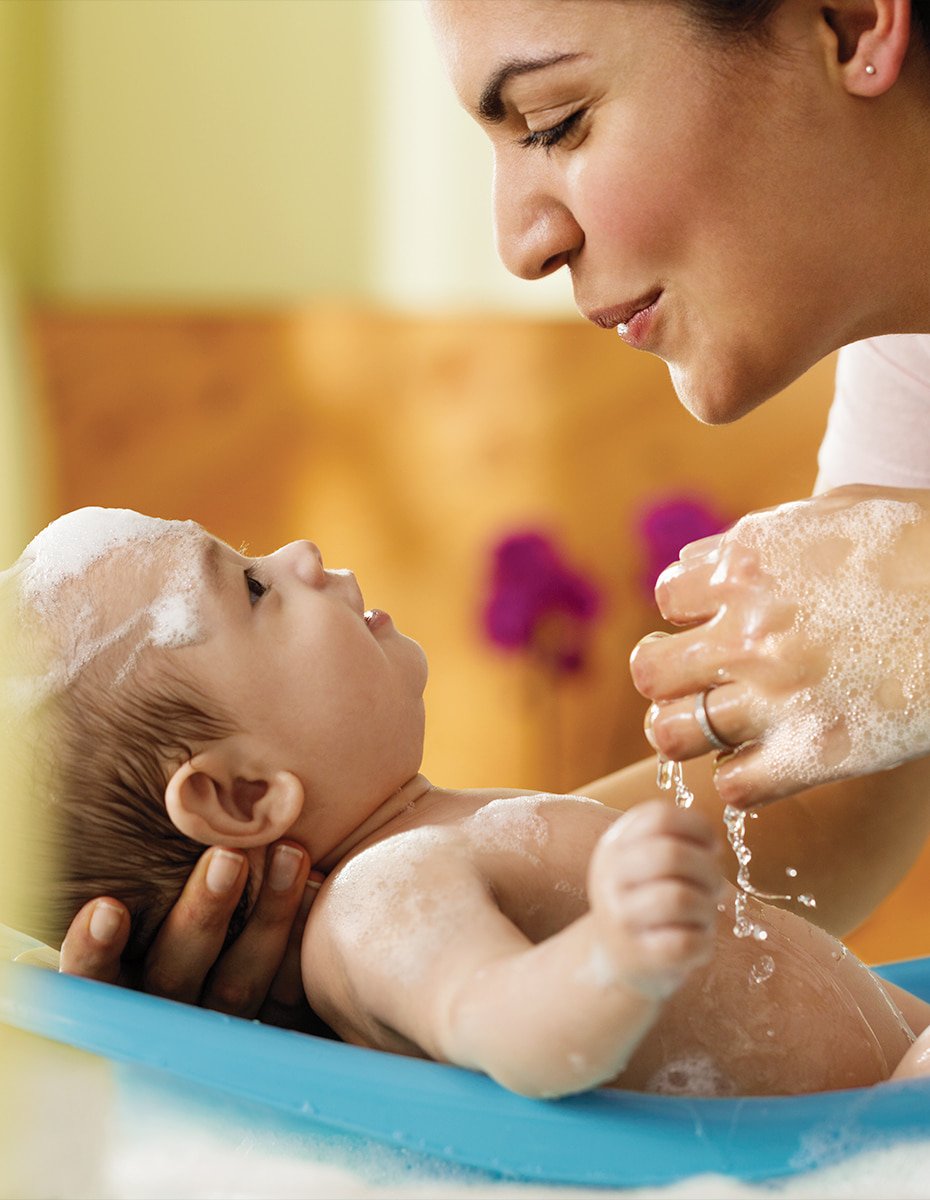Only Specific Ingredients In JOHNSON’S® Products
In the precious first few months, a baby’s skin is extremely delicate and needs special care. So it’s important that parents have all the relevant information about their baby’s skincare needs.
That’s why we have created a simple easy-to-print guide you can share with parents that answers some of their basic questions and misconceptions.
Raising the bar on “Natural”.
Discover the real meaning behind “Natural” ingredients, the common misconceptions aboutthe “Natural” label and how fully understanding the label can point parents towards safer baby skincare products.
Chemicals can be found in nature or can be manufactured. However, in recent times, chemicals (regardless of origin) have become maligned in the public image. This can be attributed to marketing campaigns in the 1990s and 2000s which promoted health products as being “chemical free”, implying that chemicals (especially those of artificial origin) are unhealthy.
The notion can be easily debunked through scientific evidence. As stated above, every substance on Earth is a chemical or a mixture of chemicals.
These natural chemicals, at their core, are structurally identical to manufactured chemicals. Synthetic preservatives such as methylparabens, for example, are found in cosmetic products which can also be found naturally in fruits. It therefore stands to reason that a chemical’s toxicity does not depend on its origin, but on its dosage.
Median lethal dose (LD50) is the amount of a substance required to kill 50% of a test population. Assuming a body weight of 75kg, the LD50 for:
- Water = 6 liters
- Caffeine = 118 cups of coffee
- Ethanol = 585mL
All chemicals, whether natural or synthetic, are toxic if consumed in a high enough dose. This is further supplemented by the fact that many fruits and vegetables contain natural chemicals that are toxic to humans. However, they are present in such small quantities that they pose no threat to our health when consumed in sensible portion sizes. Just because a chemical is harmful or carcinogenic at very high doses does not necessarily mean that it will have any ill effects at the doses encountered by people in everyday life.
It goes without saying that products which utilize synthetic chemicals are safe for use by the general public, provided they are certified by their respective governing bodies. HCPs should do their best to mitigate the misconception that chemicals are unsafe for human consumption and may have adverse effects on health.
Communication between HCPs and patients is key, but through the educating of patients and persistence in exposing the false notions of chemical safety, the mindsets of the general public can be changed.






By registering, you agree to receive additional transactional, marketing/promotional and sample material from the Johnson's Baby Professional website. Your personal information will be used to fulfill your request for samples and/or patient education materials. Your information will be shared only with JNTL Consumer Health (Philippines) Inc., its affiliates, and any third parties working on their behalf to fulfill your request, and will be governed by our site's Privacy Policy.